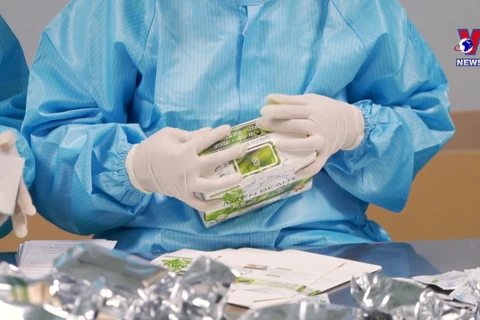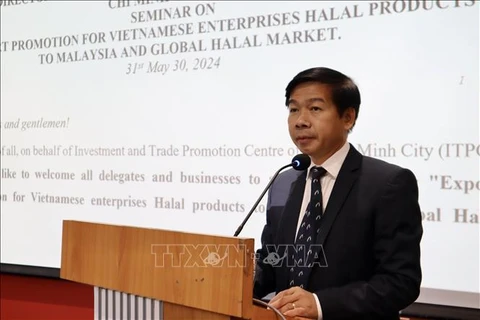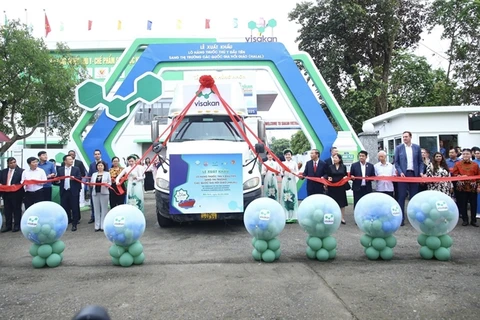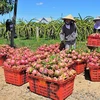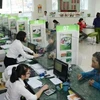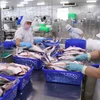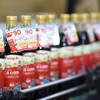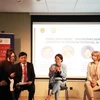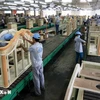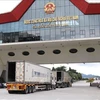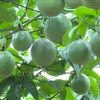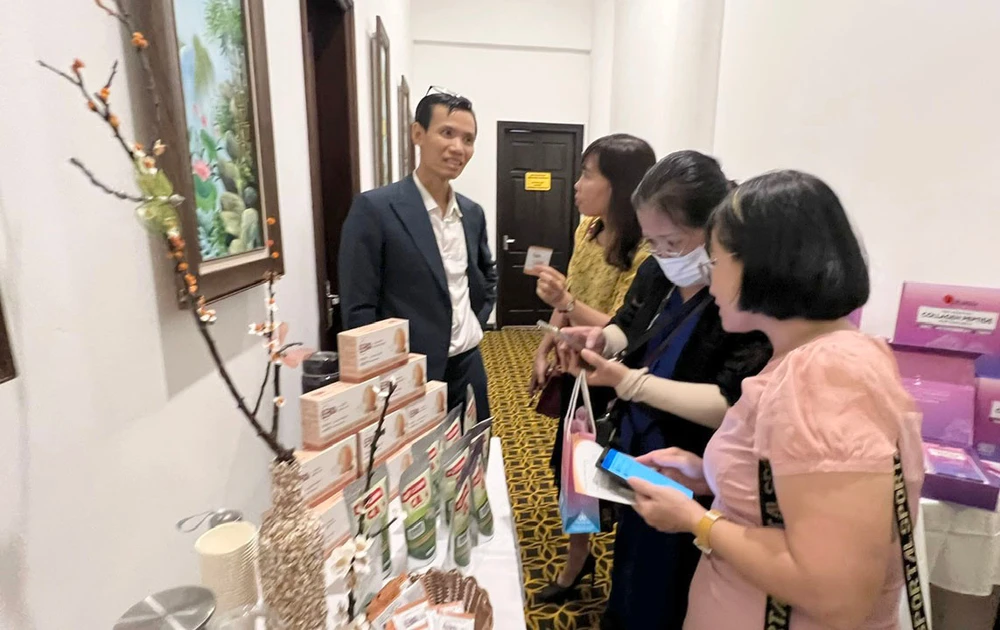
Hanoi (VNA) - The billion-USD Halal market, fueled by a surging global Muslim population, is considered one of the drivers for Vietnam's exports in the future.
DDA Vietnam, which specialises in organic products, is one of the Vietnamese enterprises seeking opportunities in the market.
Nguyen Thi Anh Nguyet, a representative of company, stated that it is completing the Halal certification to export organic calcium products made from chicken eggshells to Middle Eastern countries.
Statistics show that nearly 60 provinces and cities nationwide have exported products to the global Halal market, but only about 1,000 enterprises have been certified.
With strict regulations of Halal standards, Vietnam's current exports are mainly farm produce, and raw materials for some industries. Therefore, it holds a modest position among global suppliers of these products. Additionally, the Halal market is still very new to many domestic enterprises, despite Vietnam's advantages in raw materials and geographical location.
According to Nguyen Minh Phuong from the Department of Asia – Africa Markets under the Ministry of Industry and Trade (MoIT), the global Halal market holds great potential, with 25% of the world's population being Muslim and the total trade value of Halal products hitting an estimated 2.3 trillion USD and continuing to grow.
Products with strong demand include food, cosmetics, pharmaceuticals, and fashion items. Prices of Halal products are usually 5-10% higher and consumers who want to use Halal products are willing to pay for them.
However, to be able to successfully penetrate and compete with other rival suppliers in the market, businesses need to learn and grasp business practices, consumption culture, and market regulations, said experts.
Le Chau Hai Vu, a consultant for building Halal food quality, said businesses need to have accurate knowledge of market trend, religious practices, business and consumption culture, and preferences, and meet specific standards for packaging and advertising.
Vietnamese Trade Counsellor in Saudi Arabia Tran Trong Kim advised businesses to conduct market research and inquire about regulations of host countries regarding quality management and food safety.
For deals with import businesses in this region, it is necessary to sign payment contracts using letters of credit (LC) with a deposit, Kim said, warning that exporters should not pay in advance any fees related to contract brokerage or invoice issuance as these are common fraudulent practices.
The MoIT is building a project to support exporters and producers of Halal products, aiming to further boost the export. Additionally, the National Trade Promotion Programme is also a channel to support businesses in participating in networking and trade promotion activities with the Halal markets.
Assoc. Prof. Dr. Nguyen Thuong Lang from the National Economics University said that with its foreign trade development strategy, Vietnam should focus on effectively and sustainably exploiting the Halal market./.
